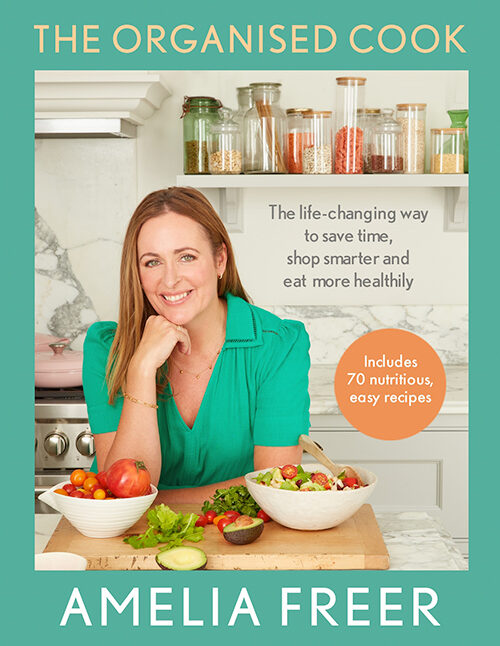Life as a Nutritional Therapist
Oct 2019
I receive many requests asking where to study, how to get started or those with an interest who are considering a new professional path. Regrettably I am unable to answer each individual request, so I have tried to answer all of the queries and share all that I think is necessary to consider and give you a little more insight into the reality of the vocation and lifestyle of nutritional professionals.
1: Get properly qualified
An online, or weekend course does not properly qualify you for this profession. Nutritional Therapy is a challenging profession that requires a huge amount of time and dedication. Working with an individual’s health, advising and supporting them appropriately needs to be managed responsibly. This is very different to running a glamorous blog! This is an industry that is now starting to achieve better recognition and hence regulation. Ensure that your course is recognised by The British Association for Applied Nutrition and Nutritional Therapy (BANT) (BANT.org.uk) which is the professional body for Registered Nutritional Therapists. Its primary function is to assist its members in attaining the highest standards of integrity, knowledge, competence and professional practice, in order to protect the client’s interests, nutritional therapy and the Registered Nutritional Therapist. BANT offers a wide range of benefits to students and full members and has its finger on the pulse for any changes or new developments within this dynamic profession.
I studied at The Institute for Optimum Nutrition (ion.ac.uk) and absolutely loved it. I have continued my education with The Institute for Optimum Nutrition (functionalmedicine.org). I am not familiar with the other courses available having not done them and suggest you really research each one that is recognised by BANT in order to choose which one feels right for you and your professional goals.
2: Your qualification is just the beginning
The moment you complete your studies is the moment you really start learning as a nutritionist. You have the foundations to practice safely, but you will still need to learn on the job, make mistakes and gain in wisdom, experience and confidence. What works with one client won’t work with another. Gradually you will build up a set of skills, phrases and knowledge which will become your own personal toolbox.
3: Work with the mind as well as the body
You may have a million and one scientific facts up your sleeve about the dangers of eating sugar, but you also need the skills and ability to help support someone who is bingeing on ice cream every evening because they are depressed. The mind and the body are inextricably linked, and food is almost always attached to a great deal of emotion. Understand where your role lies here – it is not your job to ‘fix’ people – you are only part of the process. And be aware when and where is the right time to seek help from colleagues who may be more able to support your client (psychologists, counsellors, GP etc.) to resolve these issues. I have built my own “toolbox” of appropriate practitioners to refer my clients to so that they can get the help they need.
4: It’s not all about looks!
I would say that the majority of clients that seek out a nutritional therapist are not just looking to lose a few pounds. They often have complicated medical histories, multiple symptoms, exhaustion, allergies, take a cocktail of medicines or behavioural problems around food, and need careful and safe support to help them move towards a healthier place. If in doubt, ask for advice from a mentor or specialist, and don’t be afraid to work closely with the other health professionals involved in your clients care. The wider impact of your actions and advice always need to be carefully considered. The best thing about helping these types of clients however, is the hugely positive impact that nutritional changes can have – and the weight loss is just a lovely side effect!
5: Keep developing
Science keeps on moving forwards, and you need to keep up to date with the most relevant changes. Attending regular professional development seminars, workshops or lectures is vital to keep your knowledge current. There are lots of networks and associations for nutritional professionals that provide information about lectures, seminars and events. You can’t stop learning once you have your qualification, even if it has felt like a mammoth mountain to climb!
6: You will often be changing your mind
Following on from the last point, you may find that as your knowledge progresses over time, your views and opinions also change. For example, I used to advise my clients to snack regularly. Now I encourage them to just have three proper meals everyday. Don’t be afraid to hold your hands up every now and again and say ‘Hey, I want to change my mind!’. Be open minded to new developments. You could not have known what was not yet discovered. Don’t adopt a “my way or the highway” approach. Everyone is individual.
7: Be aware that you might need to ‘unlearn’ a few things
Of course, by this I don’t mean go and throw all your textbooks away, but what you need to know is far, far more detailed than what your client needs to know about nutrition. In fact, most clients are not really interested in the science or the facts – they want practical action steps. Bombarding them with all of your passionate knowledge can be overwhelmingly confusing and not attending to their needs. Learning how to make things simple, even when they’re complicated and hard, is a vital skill for a great nutritional therapist. Think about it like an iceberg – just give them the curated tip of your knowledge.
8: Balance
This is a hard one, because so many nutritional therapists are passionate about what they do, and so many clients become rather reliant on their nutritional therapists. But you need to create boundaries you are happy with right from the beginning. I assure you that you will have happier clients as a result! I leave work behind at 6pm and do not answer work emails at the weekends. I explain all of this at the beginning of my partnership with a client, so everyone is clear from the start. Have a think about what you’d like your boundaries to be and don’t be afraid to state them clearly to any new client.
9: Money…
This is a tricky one to tackle, but I think it is important. Nutritional therapy is not a lucrative business, and many friends and colleagues I know have really struggled to make ends meet. The successful and glamorous side of the field is very rare, and although there are opportunities (such as book deals, sponsorship, meal delivery services etc.) to make a good profit, it is hard from seeing clients alone. It is definitely more a vocation, something you do because you love doing it, than a profession to make a fortune in! However, it is still an important profession and it’s reputation must be protected and so you need to be professional and run your business efficiently, charging appropriately for your time. Free advice and free consultations puts the client in an awkward position.
10: Sometimes you’ll need to defend yourself
Often I have met people socially who (for some unknown reason), feel obliged to tell me that they think my job is ridiculous. That nutrition is just calories in vs. calories out and people just need to stop being lazy. Where are their manners?! I used to get cross with this, but now I don’t rise to it. Their ignorance is a shame, but it doesn’t need to upset me. The best tip here is just to let it go – for every rude dinner party bully, there are a hundred other people who are on board with your message.
Although, as with every job, nutritional therapy has its challenges, it is also a wonderful, exhilarating and very rewarding job. There is no greater feeling than helping someone win an inner battle they’ve been fighting and become a healthier, happier person. The field is rapidly expanding and becoming a more dynamic and exciting place to work and learn. And so enjoy the journey and ride the wave of knowledge as it sweeps and expands throughout the health care of the future.
Wishing you the very best of luck for your future career!
MORE TO EXPLORE
Please note that the information on this website is provided for general information only, it should not be treated as a substitute for the medical advice of your own doctor or any other health care professional providing personalised nutrition or lifestyle advice. If you have any concerns about your general health, you should contact your local health care provider.
This website uses some carefully selected affiliate links. If you buy through these links, we may earn an affiliate commission, at no additional cost to you. This helps to keep all of our online content free for everyone to access. Thank you.




